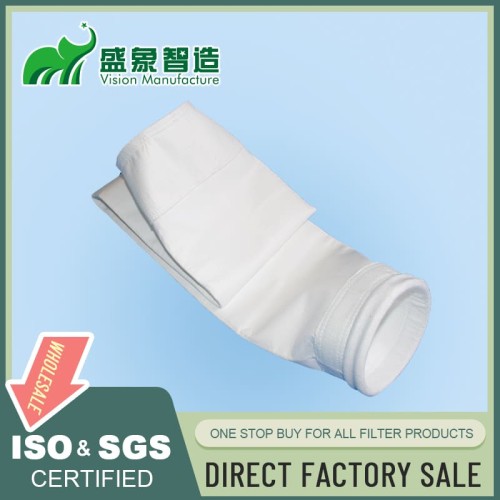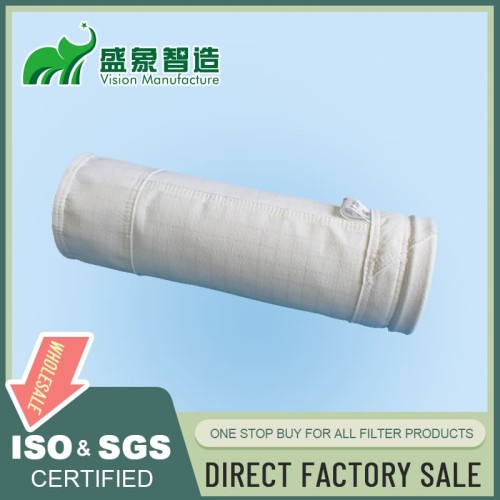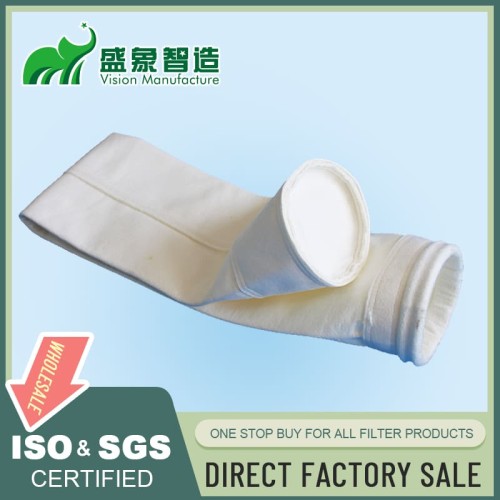
Comparing Acrylic and Polyester Filter Bags
In the world of industrial filtration, two types of filter bags stand out for their efficiency and versatility: Acrylic and Polyester filter bags. While both types of filter bags are used across various industries, they each have unique properties that make them suitable for specific applications.
Acrylic Filter Bags
Acrylic Filter Bags, also known as Homopolymer Acrylic Filter Bags or Polyacrylonitrile Filter Felt (PAN Filter Felt), are renowned for their hydrolysis resistance performance. They offer a cost-effective and efficient solution for various filtration needs, ensuring cleaner air and improved product quality across different industries such as cement, power generation, pharmaceuticals, food processing, and textiles.
Acrylic Filter Bag Features:
Chemical Resistance: Acrylic filter bags exhibit excellent resistance to a wide range of chemicals.
Temperature Resistance: They can typically operate in the temperature range of 120°C to 130°C (250°F to 270°F)1.
Hydrolysis & Moist Heat Resistance: Acrylic fibers have low water absorption properties, enabling the filter bags to maintain their filtration efficiency even in high-humidity environments with mild chemical attacks.
Cost: Acrylic is more expensive compared to polyester.
Resistance to Alkalis: The product’s resistance to alkalis is low in comparison to polyester.
Acrylic Filter Bags are widely used in various industries due to their excellent hydrolysis resistance and moderate temperature resistance. Some of these industries include:
Cement & Limestone Industry: Acrylic filter bags are used in cement production processes to filter out dust and impurities.
Power Generation Industry: These bags are used in power plants to filter out particulates from flue gases.
Pharmaceutical Industry: In pharmaceutical manufacturing, these bags help maintain clean air environments and prevent cross-contamination.
Food Processing: Acrylic filter bags are used in food and beverage production for applications like flour milling, where they help remove dust and impurities.
Textiles: These filter bags are used in textile mills to capture fiber dust and maintain air quality. Acrylic non-woven needle felt is made of synthetic acrylic fibers that are needle-punched to form a felt-like material with a high void volume, allowing for efficient filtration.
Polyester Filter Bags
Polyester Filter Bag Features:
Chemical Resistance: Polyester filter bags also exhibit good resistance to many chemicals.
Temperature Resistance: They can continuously operate between temperatures of ambient – 275 degrees Fahrenheit.
Hydrolysis & Moist Heat Resistance: Polyester may not be suitable if there is more than 10% moisture in your application due to potential hydrolysis.
Cost: Polyester is one of the most widely used filter bag medias in the dust collection industry because of its reliable performance in a broad range of applications, relatively low cost, and availability.
Resistance to Alkalis: Polyester has better resistance to alkalis compared to acrylic.
Polyester Filter Bags are known for their excellent chemical, abrasion, and temperature resistance. They are widely used in various industries such as:
Food Processing: Polyester filter bags are used in food processing industries to filter out impurities and contaminants from liquids.
Pharmaceuticals: These filter bags are used in pharmaceutical industries to filter out particulates and ensure a clean environment.
Chemicals: In chemical industries, these bags are used to separate and collect particles or solid residues.
Manufacturing: Polyester filter bags are used in various manufacturing processes to capture dust and maintain air quality.
Woodworking and Metalworking: These bags are used in woodworking and metalworking industries to collect wood and metal dust, enhancing workplace safety.
While both Acrylic and Polyester filter bags are used in various industries, they cannot replace each other due to their unique properties. Acrylic filter bags are known for their hydrolysis resistance and are suitable for applications involving moist or humid gas streams. On the other hand, Polyester filter bags are known for their excellent chemical and abrasion resistance, making them suitable for applications involving aggressive chemicals and abrasive particles.
On the other hand, Polyester Filter Bags are known for their excellent chemical, abrasion, and temperature resistance. They are widely used in various industries such as food processing, pharmaceuticals, chemicals, manufacturing, woodworking, and metalworking.
In conclusion, both Acrylic and Polyester filter bags offer unique advantages and are essential tools in the realm of industrial filtration. The choice between the two depends on the specific requirements of your application, including the type of particles to be filtered, the operating temperature, and the chemical environment. Remember, the best filter bag is the one that fits your needs the most, not necessarily the most expensive one.



